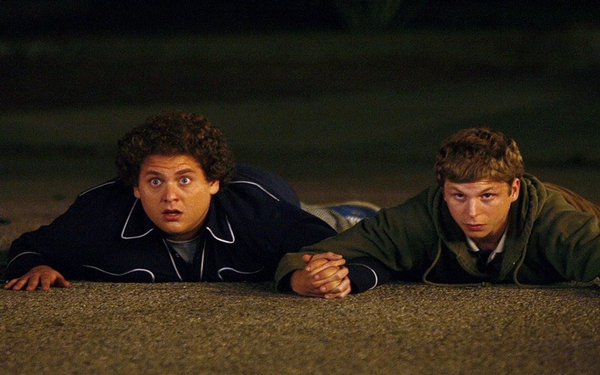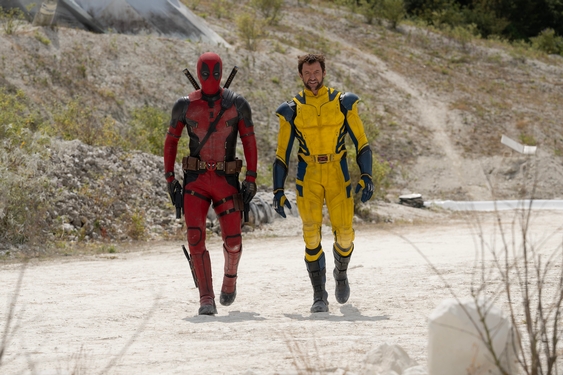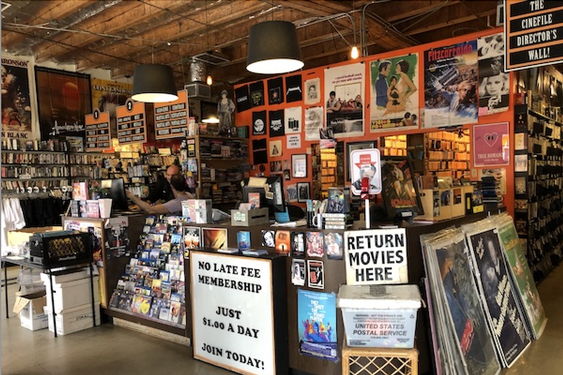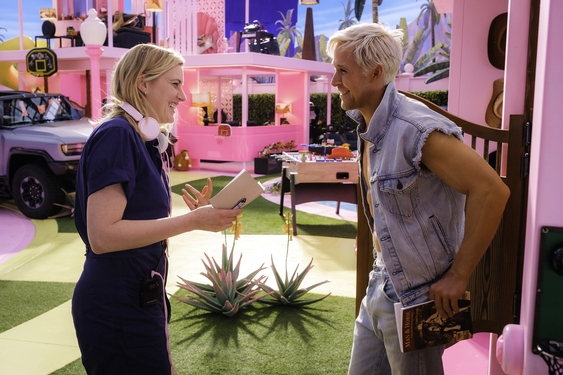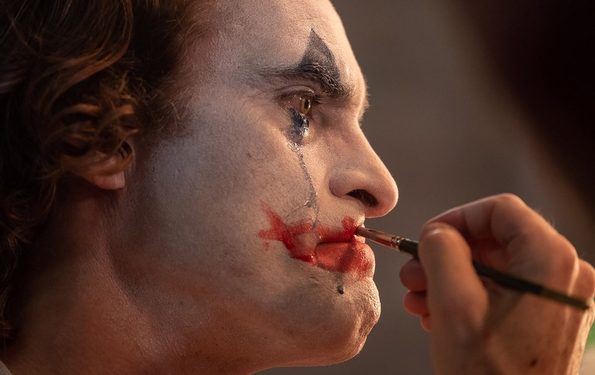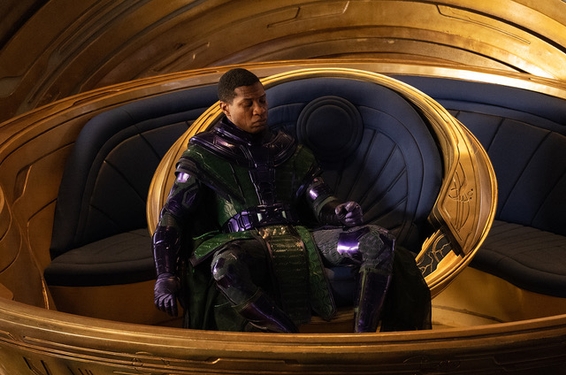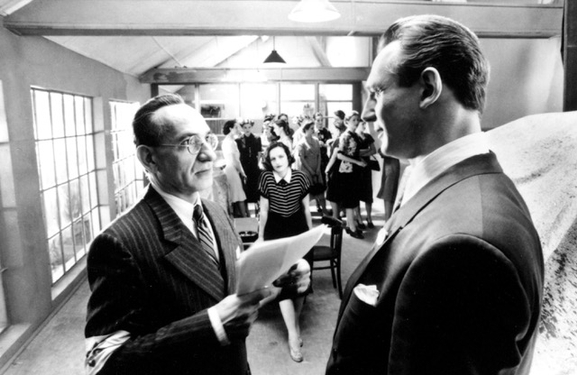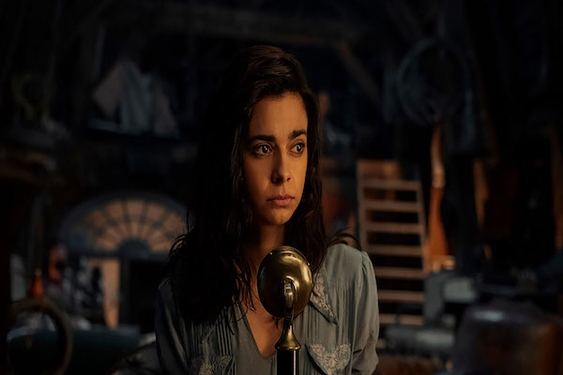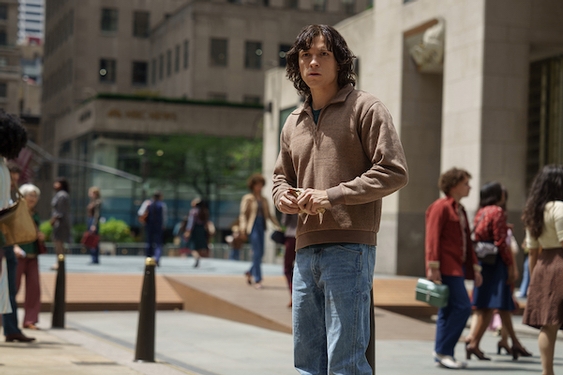Sexual violence is everywhere in film and TV. That’s what researcher Sarah Projansky argues in her nonfiction book “Watching Rape.” A professor of media and gender studies at the University of Utah, Projansky told me she gets skeptical looks from people when she makes this observation.
“I have a not-so-fun party game that I sometimes play when people are suspicious of that claim,” she said. “If someone asks me at a party, ‘Oh, what do you do?’ and I say, ‘I wrote this book and I argue that sexual violence is in pretty much all film and television,’ the response tends to be: Oh, that can’t be true. And I’ll say, ‘Well, what’s the last film you saw?’ and I can tell them where the sexual violence was in the film.”
And only then does a light bulb go off.
Why aren’t we better at registering these moments for what they are?
I’ve been thinking about this against the backdrop of Brett Kavanaugh’s Supreme Court nomination and the allegations of teenage sexual assault that have been made against him by Christine Blasey Ford.
Kavanaugh attended high school in the 1980s, a decade when the teen sex comedy emerged as a genre all its own. The tropes are easy to spot: the lusty fumbling and bumbling — shot and edited and scored to make us laugh and assure us that these are just high jinks driven by hormones, arrested development and insecurity.
The comedic framing interests me because intentionally or not, it does the work of normalizing — de-horrifying, really — sexual assault to such a degree that we are lulled into not seeing what’s actually there.
Only now, a year into the revelations of #MeToo, are we collectively stopping to re-examine some of these movies.
Last spring for The New Yorker, the actress Molly Ringwald looked back on some of the movies she made with writer-director John Hughes with a more discerning eye: “If attitudes toward female subjugation are systemic, and I believe that they are, it stands to reason that the art we consume and sanction plays some part in reinforcing those same attitudes.”
More recently Vox writer Constance Grady connected the dots even further in her piece: “The rape culture of the 1980s, explained by ‘Sixteen Candles’: The beloved romantic comedy’s date rape scene provides important context for the Brett Kavanaugh accusations.”
These portrayals aren’t just relegated to movies from the ’80s. The thing about tropes is that they persist — notably in movies that center on a particular demographic: middle- to upper-class suburban white kids.
“The comedic lens can often overshadow the fact that sexual assault was committed,” said Claire Halffield, whose 2017 honors thesis as an undergraduate at DePauw University analyzed a number teen comedies. She includes older films such as “Fast Times at Ridgemont High” from 1982 and “Revenge of the Nerds” from 1984. But also, tellingly, more recent entries including “Superbad,” from 2007 starring Jonah Hill and Michael Cera. The latter made $121 million at the box office — a lot of people saw “Superbad” — solidifying it as a beloved addition to the genre.
When you Google the film’s title, here’s the synopsis that pops up: “Two inseparable best friends navigate the last weeks of high school and are invited to a gigantic house party. Together with their nerdy friend, they spend a long day trying to score enough alcohol to supply the party and inebriate two girls in order to kick-start their sex lives before they go off to college.” (Emphasis mine.)
Sujata Moorti is a professor of gender, sexuality and feminist studies at Middlebury College, and here’s what she told me: “The people who make these movies probably don’t see themselves as endorsing rape.”
I think that’s right.
“But the humor is derived from the ineptitude of these teenage boys,” Moorti said, “and sexual assault gets folded into that and it becomes an accessory to the humor. So it has a trivializing effect. A sanitizing effect. Whereas what Molly Ringwald was saying was: No, the endpoint was sexual assault, it wasn’t simply eliciting a laugh.”
Let’s talk about “Superbad.” Evan (Cera) and Seth (Hill) are the movie’s heroes — endearingly dorky, comically profane and obsessed with sex — and it is their close friendship and chatty comedic boorishness (whenever we see their point-of-view gaze in the direction of a woman or teenage girl, the camera zeroes in on her breasts) that gives the story shape and purpose.
But you can’t escape that nasty premise, no matter how humorously it’s dressed up — no matter how exuberantly it’s passed off as teenage raunch. Of course the movie doesn’t paint the boys as monsters. That’s what makes this trope so effective — they’re not the villains here. And here we butt up against the limits of comedy. The boys do “toy with the idea that alcohol and sex should not mix,” Halffield writes in her paper, but “at the end of the day, it does not stop them from attempting to use alcohol for this purpose.”
The plan is laid out while the guys converse on the high school soccer field. “She’s going to be at the party and she’s going to be drunk and she likes me at least a little enough to get with me,” Seth says of his crush (played by Emma Stone). Then he enthusiastically advises Evan do the same with his crush (played by Martha MacIsaac): “When you guys are s — -faced at the party, get with her.”
Here’s the thing: “At no point in the movie do these guys realize: Oh wait, this is bad,” said Halffield.
Let’s take it a step further: “My big beef with the movie is that at the end, they’re rewarded for it,” said Ryan Megan. Two years ago on his blog Mega Nerd Media, Megan wrote about rape culture and the movies, “Superbad” among them. I’m always heartened when men grapple with these conversations. That it’s not just “women’s work” to think about the ways these portrayals color how we collectively view issues of sexual assault.
“I wish I could say I’ve always had a good head on my shoulders when it comes to issues about consent and body autonomy,” Megan told me. “But once you begin the conversation about what consent means — and what entitlement to someone else’s body means — you start to enter into the realm of thinking, ‘Was I a bad guy at some point?’ Nobody wants to think that. So there’s a lot of incentive to not challenge yourself like that. I started to take a harder look at films and TV and what they say about consent and when I went back and watched them, I was kind of freshly horrified.”
“Superbad” was a movie that Megan initially loved — in part because it captured something that felt true: “Evan Goldberg and Seth Rogen started writing that film when they were 13 and they didn’t finish writing it until they were 18. Clearly the stories they were writing were autobiographical. These were actual kids writing about their lives and I think that’s why the film spoke to a lot of people. There’s a realness to these young males — certainly to me. It reminds me of how I acted and how my friends acted,” he said.
We’re meant to root for Seth and Evan even as they lay the groundwork for assault. Even as they seek out a loophole to consent. “It’s passed off so innocently in teen movies, and that’s why it can be kind of insidious,” said Megan, “because it doesn’t take but five minutes to go to any college town on a Friday night and see this at play.”
That Seth and Evan never successfully dupe through alcohol anyone into having sex isn’t a result of their better instincts prevailing — but because outside circumstances prevent it.
And ultimately they’re rewarded with the female attention they so desperately crave.
I can understand why defenders of the film, men in particular, might resist these kinds of criticisms — because in a sense, maybe it feels like a critique of who they were as teenagers. On Rotten Tomatoes, 87 percent of critics give the movie a positive review and it’s beloved precisely because it captures something so real about a certain kind of male teenage experience.
I wonder if the way teen sex comedies gloss over assault has helped create a collective head space where the idea of force or trickery looks like something else: Horseplay. Immaturity. Obnoxious? Yes. But nothing really all that bad.
Earlier this week, USA Today contributor Kirsten Powers wrote about her own sexual assault: “When I was 15 years old, I passed out at a party after being fed all sorts of alcoholic concoctions by older boys I knew and idolized, but who in hindsight were eager to get me drunk.”
Why didn’t she tell anybody about it afterward? “While I knew something terrible had happened, I didn’t think I had been sexually assaulted. In the early 1980s, we didn’t possess the vocabulary to make such declarations.”
But movies have given us a language, right? It’s just the wrong language — of laughter and No Big Deal and Boys Will Be Boys and What’s the Problem, Anyway?
Movies are not instruction manuals. We alone as individuals are responsible for our behaviors and how we treat others.
But the stories of TV and film are the stories we tell ourselves about ourselves.
Here’s Megan: “This is a constant conversation we should be having about what all of this means. Movies reflect who we are, and we should critique them because of that. It’s a constant struggle of: Are these films a cause of, or reflection of, problems? And it’s both. Doesn’t mean that we need to erase all copies and burn them in a giant pyre. It just means that we need to have an honest conversation, because you’ll find this is true of most teen comedies and most romantic comedies.
“And it’s easy for it to kind of wash over you because we’ve been steeped in it for so long, this idea that there’s got to be a shortcut to consent. That there’s an underlying entitlement to somebody else’s body. That whatever it takes, you have to cheat the system and get around the fact that this person — in their rational, sober mind — doesn’t want you.”
———
©2018 Chicago Tribune
Visit the Chicago Tribune at www.chicagotribune.com
Distributed by Tribune Content Agency, LLC.


